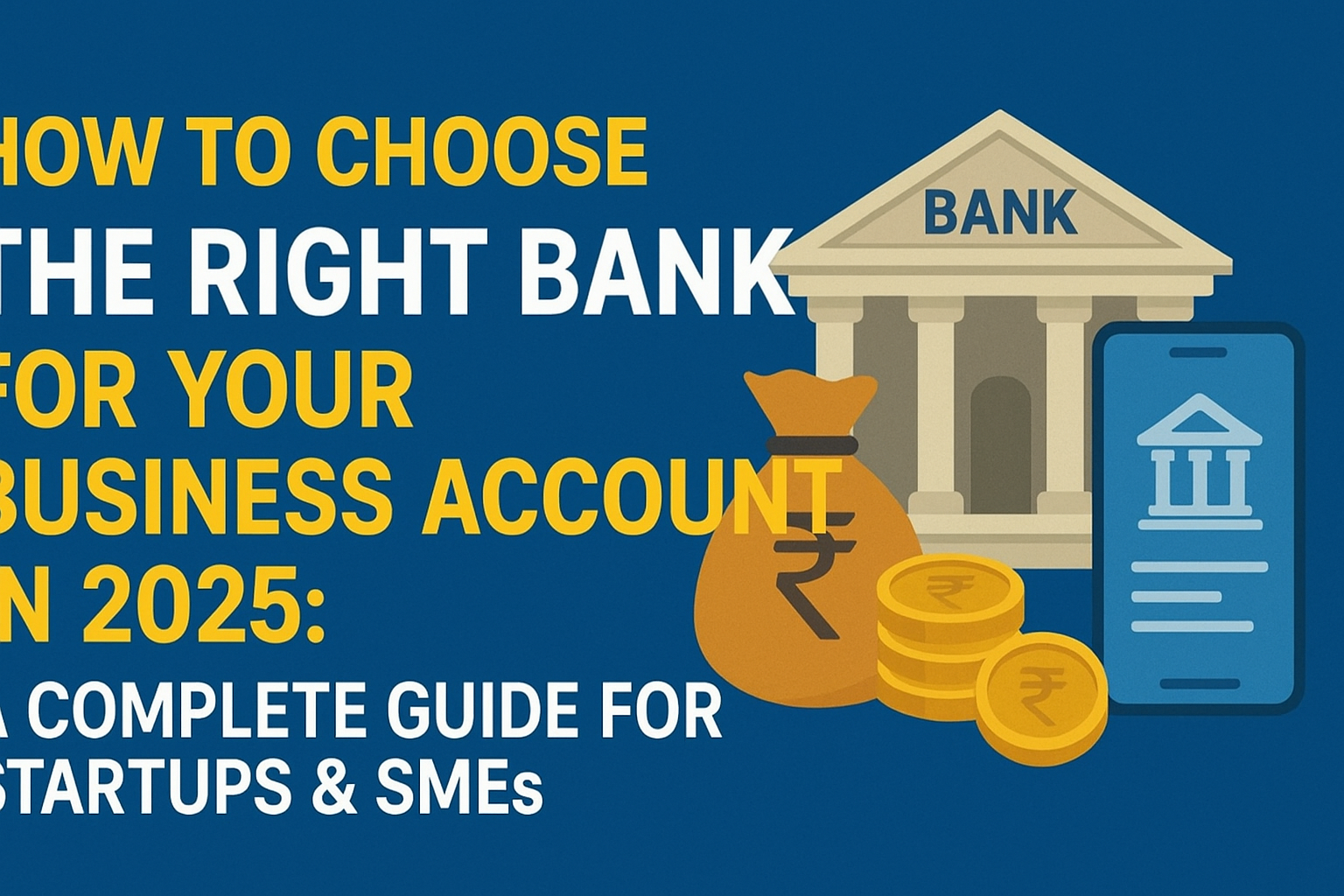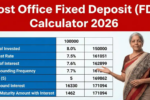Opening a business bank account is one of the first and most important financial decisions for any startup, small business, or entrepreneur. The right account not only helps manage cash flow but also supports growth through digital banking, credit facilities, and value-added services. With so many options in 2025, choosing the best bank can feel overwhelming.
This guide will help you understand key factors, features, and comparisons so you can pick the right bank for your business needs.
1. Why a Business Bank Account is Essential
A dedicated business account offers more than just a place to deposit money:
- Professionalism: Separates personal and business finances.
- Financial Management: Simplifies bookkeeping, tax filing, and compliance.
- Creditworthiness: Builds business history for loans and funding.
- Digital Benefits: Enables easy UPI, NEFT, RTGS, and international transactions.
- Legal Requirement: Mandatory for registered businesses and startups.
2. Types of Business Accounts in 2025
Before choosing a bank, know which type of account suits your business:
- Current Accounts: Best for SMEs and startups with frequent transactions.
- Startup Accounts: Tailored for new ventures with zero/minimum balance options.
- Premium Accounts: Offer higher transaction limits, relationship managers, and perks.
- Digital-First Accounts: Mobile and internet banking focused, ideal for tech-savvy entrepreneurs.
3. Key Factors to Consider Before Choosing a Bank
When comparing banks, consider these crucial aspects:
a) Minimum Balance Requirement
- Some banks offer zero balance startup accounts, while others require ₹10,000–₹25,000 minimum balance.
- For SMEs, look for flexible balance requirements to reduce costs.
b) Transaction Charges & Limits
- Check fees for NEFT/RTGS/IMPS, cash deposits, withdrawals, and cheque transactions.
- Startups with digital operations should prefer accounts with unlimited free online transfers.
c) Digital Banking Features
- Mobile apps, internet banking dashboards, and UPI integrations are must-haves in 2025.
- Look for advanced tools like expense tracking, payroll management, and invoice generation.
d) Lending & Credit Facilities
- A good bank relationship helps secure business loans, overdraft facilities, and working capital credit lines.
- Some banks offer pre-approved credit limits based on transaction history.
e) Branch & ATM Network
- If your business deals with cash, a wide branch and ATM presence is essential.
- For digital-first startups, this may matter less.
f) Value-Added Services
- Free debit cards, accounting software integration, tax assistance, or foreign exchange support.
4. Best Banks for Business Accounts in 2025 (India Snapshot)
Here’s a quick look at some popular choices for startups and SMEs:
- HDFC Bank: Known for strong digital banking, premium services, and SME loan support.
- ICICI Bank: Offers current accounts with business credit cards and integrated payment solutions.
- Axis Bank: Provides startup-friendly accounts with zero balance options and digital payroll services.
- SBI: Trusted for wide reach, government tie-ups, and affordable transaction charges.
- Kotak Mahindra Bank: Digital-first accounts like Kotak Startup Edge with low charges and fintech integration.
- Yes Bank & IndusInd Bank: Known for higher transaction limits and relationship-driven banking.
5. Choosing the Right Bank Based on Business Size
- Startups & Freelancers: Prefer digital-friendly banks with zero balance accounts (e.g., Kotak 811 Business, Axis Startup Account).
- Small & Medium Enterprises (SMEs): Need accounts with higher transaction limits, overdraft facilities, and loan access (e.g., HDFC SmartUp, ICICI SME Current Account).
- Exporters & Importers: Should choose banks offering strong forex services and international tie-ups (e.g., SBI, Federal Bank).
6. Common Mistakes to Avoid
- Choosing Based Only on Interest Rates: Features and services matter more than small interest differences.
- Ignoring Digital Capabilities: A poor mobile app can slow down business operations.
- Overlooking Hidden Charges: Transaction fees and penalty charges can eat into profits.
- Not Checking Loan Support: Future funding needs should align with your chosen bank.
Final Thoughts
In 2025, the best bank for your business account depends on your company’s size, nature, and financial goals. For startups, zero-balance digital accounts are ideal. For SMEs, banks offering credit lines and high transaction limits are a better fit.
Also Read : Fixed Deposit vs Recurring Deposit: Which is Better for Your Money in 2025?
Always compare fees, features, and digital services before making your choice. Remember, the right business account is not just about storing money—it’s about building a financial foundation that supports growth, credit access, and long-term success.






